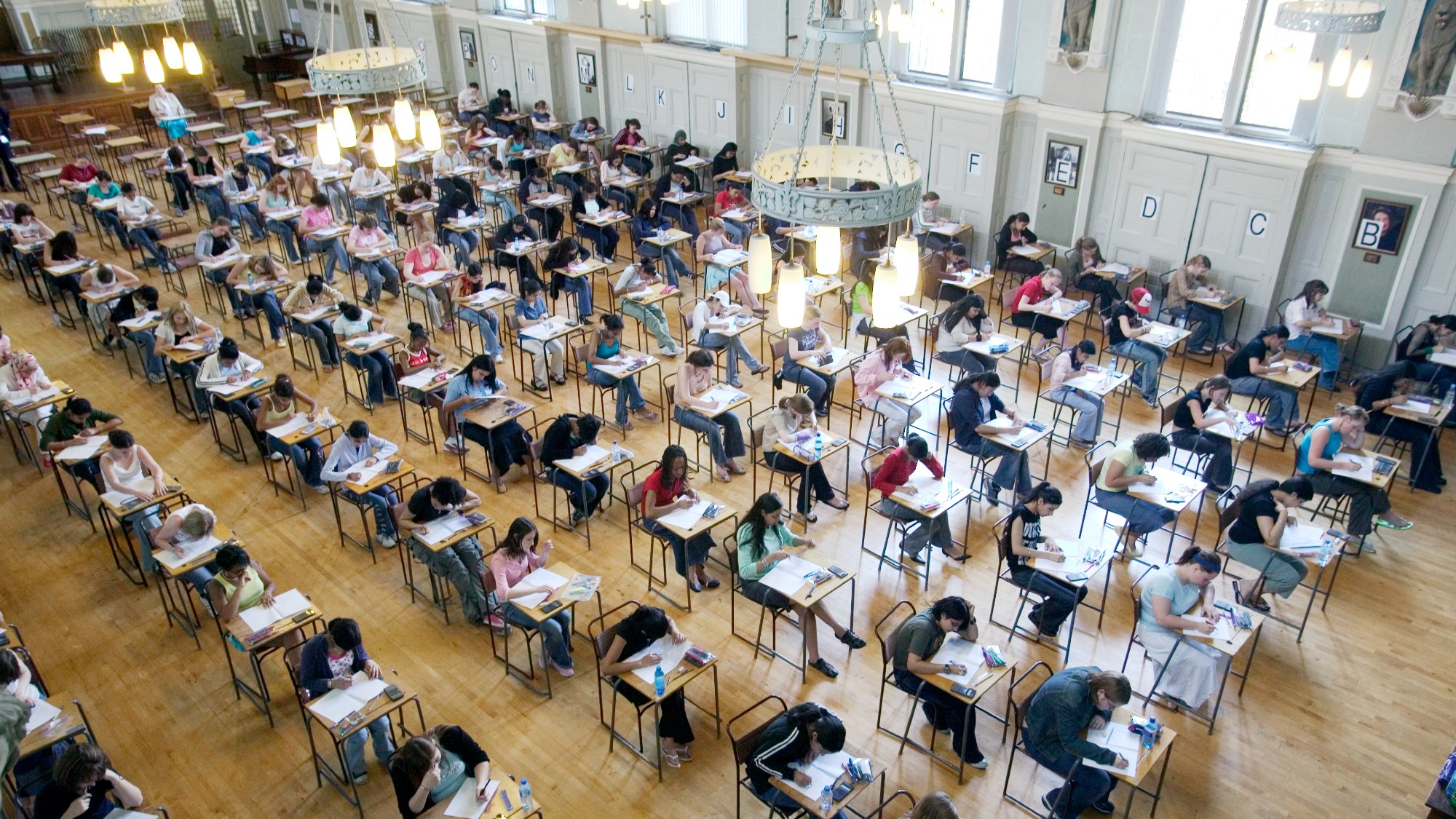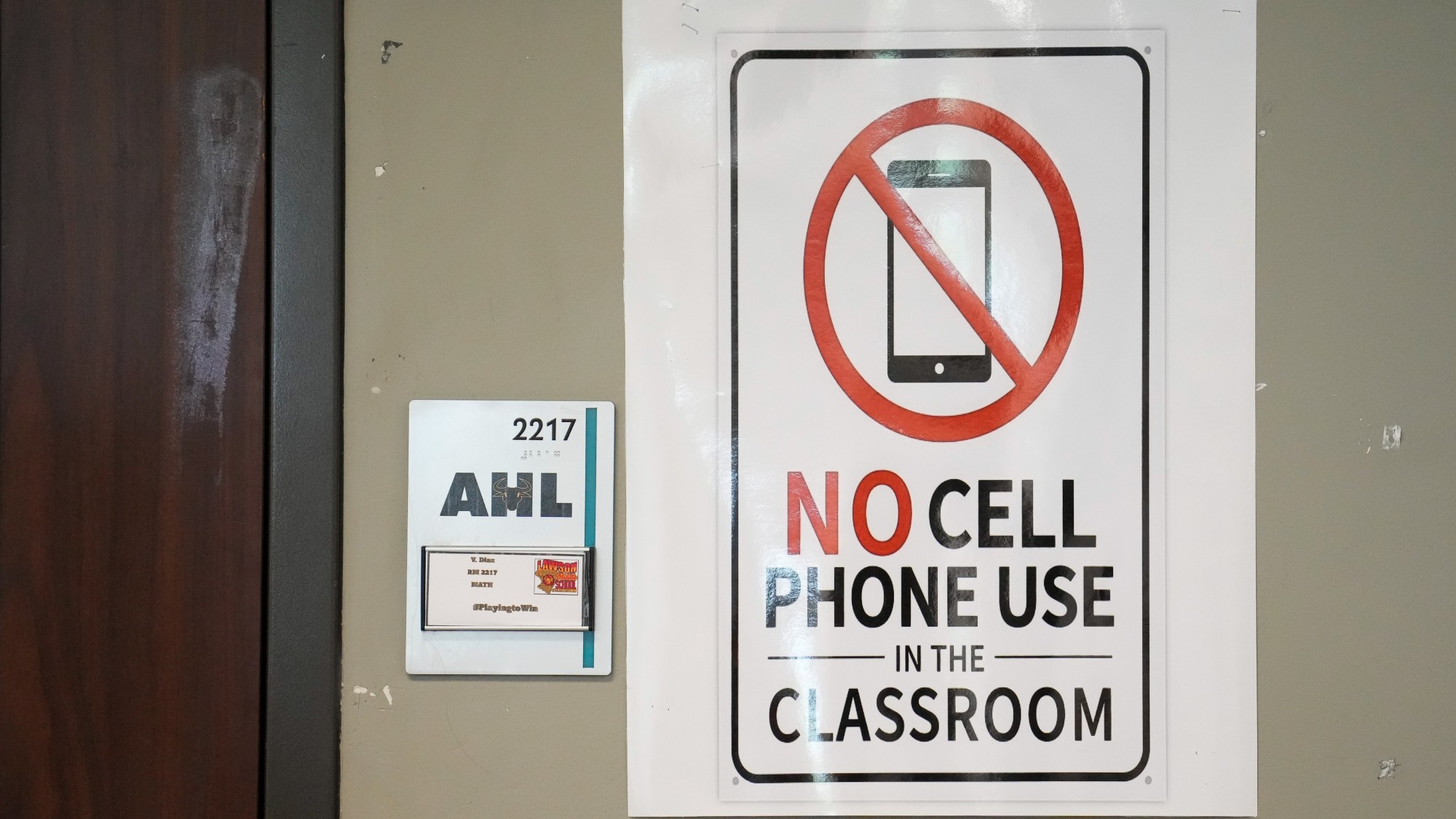Is it time to scrap compulsory GCSE resits?
Only in one in five who retake English or maths achieve a pass, calling into question the effectiveness of 'annual torture'

A free daily email with the biggest news stories of the day – and the best features from TheWeek.com
You are now subscribed
Your newsletter sign-up was successful
The policy of making school pupils resit GCSEs until they pass is "not fit for purpose", education leaders have said.
This year, a record number of GCSE exams were compulsory resits, and calls are growing for the practice to be scrapped, not least because it undermines young people's confidence and motivation.
The compulsory resit policy was introduced by Michael Gove in 2012, and means school pupils in England who don't pass either Maths or English GCSE the first time round must keep retaking the exam until they get a grade 4 or higher, up to the age of 18.
The Week
Escape your echo chamber. Get the facts behind the news, plus analysis from multiple perspectives.

Sign up for The Week's Free Newsletters
From our morning news briefing to a weekly Good News Newsletter, get the best of The Week delivered directly to your inbox.
From our morning news briefing to a weekly Good News Newsletter, get the best of The Week delivered directly to your inbox.
What did the commentators say?
For almost 25% of pupils taking Maths and English GCSEs this year, "it wasn't their first rodeo", said the BBC's Ashitha Nagesh. Pupils are getting "stuck" in a "potentially demoralising" treadmill of compulsory retakes, which also puts a strain on the colleges who have to facilitate all the extra exams.
The breakdown of this year's results reveals the "broken legacy" of Gove's resit policy, said Richard Adams, education editor of The Guardian. There were 346,000 entries for English and maths GCSEs by older students (aged 17 to 19) – up by nearly 50,000 from last year – and only about one in five of those achieved a pass grade. This is a growing "cycle of failure".
There are "very few" in "any level" of the education sector who will defend the resit system, said GCSE English teacher Sean Vernell at FE Week. Gove's reforms weren't "modern or progressive" but a "throwback to the 19th century utilitarian education system". They have resulted in a a "narrow exam factory approach to English and maths which has failed young people".
Criticism of the system – and of the standards it requires – has been building for quite a time. Resits are "annual torture", said Polly Toynbee in The Guardian after last year's GCSE results. We force pupils through retakes "again and again", knowing that most will "fail again and again". In a subject like maths, "basic exams covering everyday numeracy, literacy and digital fluency" would be an improvement; to "function in society", it's really not necessary to master "quadratic equations, trigonometry or an understanding of pi".
A free daily email with the biggest news stories of the day – and the best features from TheWeek.com
Should the government do away with compulsory resits, though, it is "likely to face pressure to prove it is not lowering standards for underachievers", said The Telegraph.
What next?
There is an ongoing independent review of the educational curriculum and assessments, which is due to report this year. Earlier this month, Education Secretary Bridget Phillipson said the review would include "looking at how best we can support 16- to 19-year-olds who don't achieve the right level in maths and English".
Alternatives to compulsory resits could include "testing pupils in stages" or launching "driving licence-style certificates" that prove "basic ability", said The Telegraph. Whatever changes are made, said Vernell in FE Week, "compulsion cannot be a part of any new system. Students must be inspired to learn – not forced."
-
 Magazine printables - February 27, 2026
Magazine printables - February 27, 2026Puzzle and Quizzes Magazine printables - February 27, 2026
-
 ‘The forces he united still shape the Democratic Party’
‘The forces he united still shape the Democratic Party’Instant Opinion Opinion, comment and editorials of the day
-
 The year’s ‘it’ vegetable is a versatile, economical wonder
The year’s ‘it’ vegetable is a versatile, economical wonderthe week recommends How to think about thinking about cabbage
-
 How will new V level qualifications work?
How will new V level qualifications work?The Explainer Government proposals aim to ‘streamline’ post-GCSE education options
-
 The pros and cons of banning cellphones in classrooms
The pros and cons of banning cellphones in classroomsPros and cons The devices could be major distractions
-
 School phone bans: Why they're spreading
School phone bans: Why they're spreadingFeature 17 states are imposing all-day phone bans in schools
-
 Schools: The return of a dreaded fitness test
Schools: The return of a dreaded fitness testFeature Donald Trump is bringing the Presidential Fitness Test back to classrooms nationwide
-
 Send reforms: government's battle over special educational needs
Send reforms: government's battle over special educational needsThe Explainer Current system in 'crisis' but parents fear overhaul will leave many young people behind
-
 Education: Can public schools be religious?
Education: Can public schools be religious?Feature A Supreme Court seems ready to rule in favor of religious charter schools in Oklahoma, which could reshape public education
-
 America's academic brain drain has begun
America's academic brain drain has begunIN THE SPOTLIGHT As the Trump administration targets universities and teachers, educators are eying greener academic pastures elsewhere — and other nations are starting to take notice
-
 Schools' Send crisis: how can it be fixed?
Schools' Send crisis: how can it be fixed?Today's Big Question Government urged to reform support for children with special educational needs and disabilities and save councils from bankruptcy